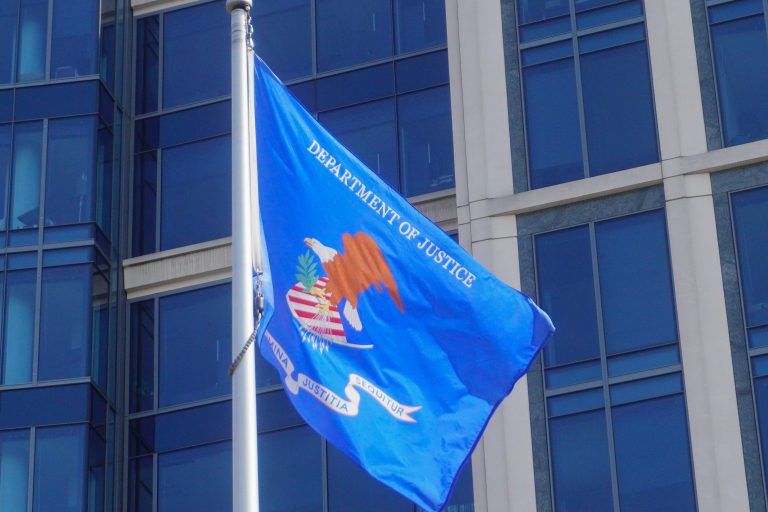President Donald Trump ran for re-election at least in part on a promise to do away with certain federal gun-control laws. Now, his administration is actively fighting to keep the most commonly enforced federal gun law intact and on the books.
Throughout the month of April, the Department of Justice (DOJ) has argued in court filings against the Supreme Court of the United States (SCOTUS) granting review of the constitutionality of the lifetime gun ban for felons. Most recently, Solicitor General John Sauer responded to a petition for certiorari in one such case. On Friday, he argued that the issue “does not warrant this Court’s review,” minimized the difference of opinion on the ban among the lower courts, and said the DOJ’s new process for restoring gun rights was sufficient.
“Although there is some disagreement among the courts of appeals regarding whether Section 922(g)(1) is susceptible to individualized as-applied challenges, that disagreement is shallow,” Sauer wrote in Hunt v. United States. “And any disagreement among the circuits may evaporate given the Department of Justice’s recent reestablishment of the administrative process under 18 U.S.C. 925(c) for granting relief from federal firearms disabilities.”
The DOJ’s filings show the Trump Administration’s preferred approach to gun rights for convicted felons. It’s one that would grant a high degree of discretion and centralize the decision-making within the executive branch rather than through a widely applicable legal precedent, as gun-rights advocates have long sought in court. As a result, it may undermine many of the movement’s best cases by undercutting the claims of sympathetic plaintiffs.
Bryan Range, a Pennsylvania man with a 30-year-old state misdemeanor conviction for understating his income on a food stamp application, is at the center of one case the administration’s actions have impacted.
Gun-rights groups partnered with Range to challenge his lifetime disarmament. They twice secured a ruling from the en banc Third Circuit Court of Appeals holding the federal ban unconstitutional as applied to him. Though the Biden DOJ opted to appeal the first ruling to the Supreme Court, the Trump DOJ allowed the deadline to appeal the second decision to pass by last Tuesday. That means the ruling will stand, but it will be limited to just the Third Circuit rather than potentially the entire country.
In a letter sent to the Senate Judiciary Committee earlier this month, Sauer noted that the missed deadline was intentional.
“The Department of Justice has concluded that a petition for a writ of certiorari is not warranted in this case,” Sauer wrote. “The Third Circuit’s decision is narrow, leaving Section 922(g)(l) untouched except in the most unusual applications.”
He even acknowledged that the new rights restoration process would likely head off similar plaintiffs from securing more wins.
“Because the courts of appeals have not yet had the opportunity to consider the effect of that action on the constitutional analysis, and because Range himself would likely qualify for relief under the revitalized process, the Department has concluded that the Supreme Court’s intervention is not warranted at this time,” he wrote.
Sauer’s arguments have appeared against petitioners with violent and non-violent criminal histories alike, suggesting that the DOJ is uninterested in High Court review even under more favorable circumstances. On April 11th, Sauer filed a similar opposition brief in Edell Jackson v. United States, another case that has bounced to and from the Supreme Court multiple times, arguing against the Court opining on felon gun rights.
“Although there is some disagreement among the courts of appeals about how to evaluate as-applied challenges to Section 922(g)(1), that disagreement is shallow; the recent revitalization of the Section 925(c) process may resolve it; and petitioner’s long criminal record makes this case a poor vehicle for addressing the question presented,” he wrote.
As a result, gun-rights advocates’ hopes for a path for previously convicted criminals to regain their gun rights hinge largely on the rollout of the DOJ’s new rights restoration program. Though it was first announced more than a month ago, the first public evidence of concrete action has only just started to appear.
On Monday, the Attorney General’s Office published a notice granting relief from permanent disarmament to ten individuals in the Federal Register. The individuals affected include the actor and prominent Trump-booster Mel Gibson, as well as Judy Broach, Danny Preston Conrad, Timothy Lyn Dunham, Jessica Lynn Jacobson, Joseph Klecko, Wayne L. Mertz, Charles E. Moehring, Jr., Patrick Lynn Morgan, and Ronald Joseph Willkomm.
“The Attorney General has reviewed all the relevant facts for each individual listed below, including the materials that each individual submitted seeking either a pardon or relief from federal firearms disabilities, and it is established to her satisfaction that each individual will not be likely to act in a manner dangerous to public safety and that the granting of the relief to each individual would not be contrary to the public interest,” the notice reads.
The Department of Justice did not respond to a request for further comment on how it vetted and selected those who had their gun rights restored, the nature of their predicate offenses, and how it plans to administer the process moving forward. However, at least one name on the list has already sparked controversy.
Back in early March, The New York Times first reported that Mel Gibson was under consideration to have his firearms rights restored despite a previous domestic violence misdemeanor conviction. Elizabeth G. Oyer, a former DOJ pardon attorney tasked with putting together the first list of former convicts eligible for the renewed rights restoration process, told The Times she was fired for refusing to recommend Gibson. She said she expressed concern over granting access to firearms to someone with a history of domestic abuse, but was told to do so anyway due to Gibson’s relationship with the President.
The Times also reported Oyer disagreed with DOJ leadership over how to implement the rights restoration process. She wanted a case-by-case approach, while leadership favored a more automatic process. However, DOJ hasn’t announced if or when it plans to expand the rights restoration process to others.






